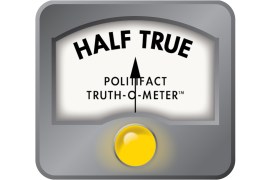Justice Department Files Suit Against Forest Laboratories for Illegally Marketing Celexa, Lexapro for Children
The U.S. Department of Justice on Wednesday filed a civil complaint against drugmaker Forest Laboratories alleging the company defrauded the government of millions of dollars by illegally marketing antidepressants Celexa and Lexapro for use in children, the New York Times reports. Celexa and Lexapro, two versions of the drug citalopram, are FDA-approved only for adults. Although physicians can prescribe drugs for uses not approved by the agency, it is illegal for companies to actively promote such uses.
Federal prosecutors allege that Forest executives from 2001 to 2004 concealed the results of a clinical study that showed the drugs might pose risks to children, including causing some to have thoughts of suicide. During that time Forest promoted results from another clinical trial it had financed that found the drugs were effective. According to the complaint, the company did not disclose the results of the negative study to researchers of the positive study, its own medical advisers or its sales representatives.
Prosecutors in the complaint said, "Forest told prescribing physicians a half-truth and thereby prevented them and the public from having all potentially available information when making decisions about how to treat a serious medical condition in pediatric patients."
DOJ also charged that Forest paid kickbacks -- in the form of baseball tickets, gift certificates and paid vacations -- to physicians who prescribed the drugs (Meier/Carey, New York Times, 2/26). According to the Wall Street Journal, the complaint alleges certain cash kickbacks were paid as grants or consulting fees. DOJ alleged the marketing of the antidepressants and the use of kickbacks led to "federal health care programs paying thousands of false and fraudulent claims for Celexa and Lexapro prescriptions that were ineligible for reimbursement, in violation of the False Claims Act" (Kendall/Johnson, Wall Street Journal, 2/26). In addition, the complaint alleges that Forest separately ran trials, known as seeding studies, that were actually marketing efforts to promote physicians' use of the drugs.
The government is seeking up to triple the amount of money spent by federal programs to pay for pediatric prescriptions of the drugs, but an exact figure was not specified (New York Times, 2/26).






